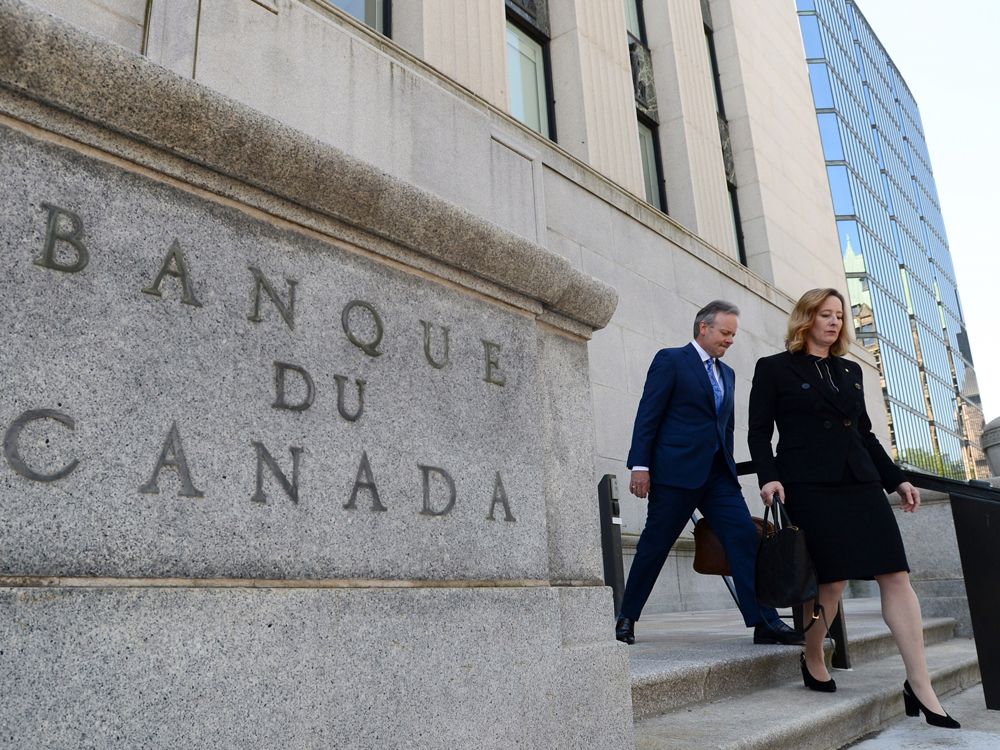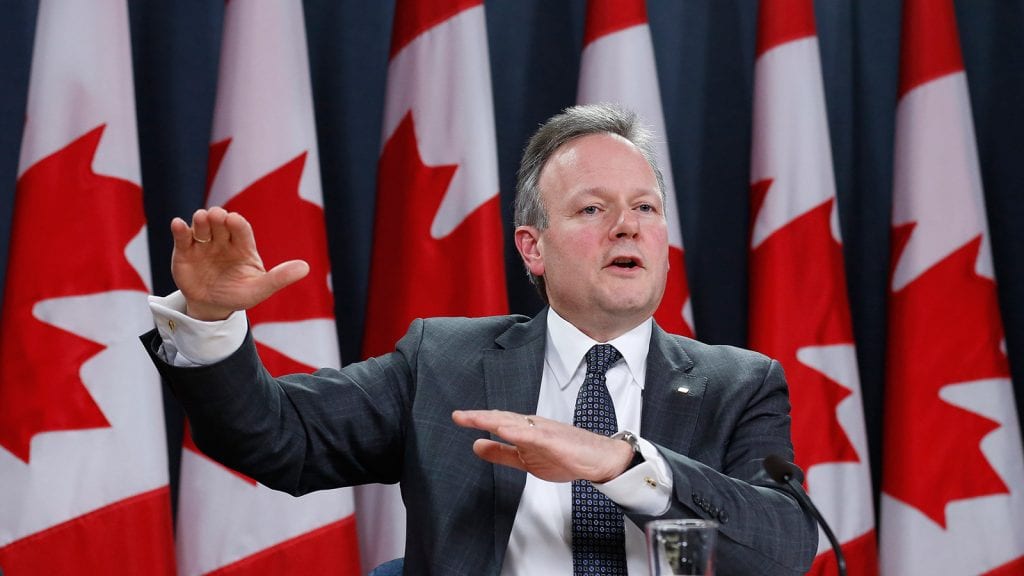
The Bank of Canada is the country’s central bank. It’s tasked with promoting “the economic and financial welfare of Canada. Some of the Bank’s main areas of responsibility are maintaining monetary policy to keep inflation low and stable as well designing and distributing our currency and monitoring our financial systems.
The Bank of Canada has been in the news quite a bit recently when it comes to maintaining or hiking the Policy Interest Rate, also sometimes known as the benchmark or overnight interest rate. This is the minimum interest rate that lenders charge to borrow from each other. The Policy Rate has close ties to both federally mandated cash reserve requirements as well as more tangible things like mortgage rates and inflation.
On January 26th, the Bank of Canada announced that it would be holding its low-interest rate for now. But what exactly does this mean for consumers? And what’s going to happen in the future?
Let’s take a closer look.
Why Are Interest Rates So Low Right Now?
In response to the COVID-19 pandemic, the Bank of Canada lowered interest rates in 2020. They set the rate at 0.25% as a way to help bridge the “difficult period” caused by the pandemic. By keeping interest rates low during a significant period of economic hardship, the Bank was able to minimize much of the negative impact brought about by the pandemic and to keep Canada’s economy going.
Since every aspect of Canada’s economy was affected by COVID-19, the bank’s decision to lower interest rates made it easier for Canadians to borrow money to help “weather the storm.”
There has been much speculation about when the rates will go up, but with ongoing variants and new waves of COVID–most recently, the Omicron variant–the bank has continued to maintain its low-interest rate.
However, from the very beginning, the Bank of Canada was adamant that these low rates were only temporary and that the rates would eventually go back up. Since then, economists and regular Canadians alike have been waiting for the Bank of Canada to make their interest rate announcement.
When Will Interest Rates Go Up?
Although we have experienced several waves, frequent lockdowns, and new COVID variants, none have been as impactful or devastating to the economy as the first wave back in March 2020. As vaccination rates rise and more Canadians are adjusting to living in a post-COVID world, the economy is, in fact, recovering nicely.
It makes sense that the interest rates will go up again back reflecting the economic stability we are seeing come back to the country. Additionally, the low-interest rates have contributed to the rising inflation we have experienced recently. Specifically in the housing market, low-interest rates were a contributing factor to rising home prices.
Statistics Canada reported that inflation was up to 5.1% in January, which is a three-decade high. Experts say that the only way to cool inflation is by raising interest rates.
Wondering what the Liberal Housing plan has in store for buyers, sellers, and renters? Read our blog about it here.
What Did the Economists Predict?
Economists have been predicting for a while now that the interest rates are going to go up. They cite rising inflation as one of the main factors putting pressure on the Bank of Canada, and they continue to predict rate hikes–although no one knows for sure when they will come.
Most economists predict at least 3-5 rate hikes over the next year.
Ahead of the Bank of Canada’s first policy meeting of 2022 in January, many economists predicted that the rates would go up. However, things did not go exactly as planned.
What Happened to the Interest Rates in January?
In an unexpected move, the Bank of Canada interest rate announcement in January was that it would be holding the Policy Rate for the time being. This announcement came as a disappointment to many economists and Canadians who watch the financial market. Since many predicted that the only way to fight inflation was to raise the rates immediately.
However, Bank of Canada Governor, Tiff Macklem stated that the reason for holding the rate at this time was, in part, because of concerns over the Omicron variant. Other economists applauded the bank for making a measured decision that could result in more gradual increases. The Bank did state that although they held the current rate after January’s meeting, consumers could expect rates to go up very soon.
What’s Next?
The Bank of Canada meets again on March 2 and many economists are predicting that this will be the day that the first of several interest rate hikes will be announced.
Most experts predicted that inflation would hold at 4.8% between December and January, so when it was reported that inflation was up to 5.1% last month, it signaled an even greater urgency to raise the rates and cool inflation. Pressure on the Bank to raise the rates is at an all-time high.
How Does the Bank of Canada Interest Rate Affect Mortgages?
Although the Policy Rate and mortgage rate are not the same things, the Policy Rate does have a significant impact on long-term borrowing rates, ie., mortgages. The Policy Rate dictates the interest rate of which lenders can borrow from one another, which subsequently impacts the Prime Rate, which then impacts your mortgage rate.
For example, the Royal Bank of Canada mortgage rate is based on a 2.45% prime rate. When you apply for a variable rate mortgage, you are typically paying “Prime + X%” for a set term. So if the prime rate goes up, you can expect your overall mortgage rate to go up as well.
However, if your term was recently renewed and your mortgage rate is locked in for the next 5 years at a low rate, you won’t be impacted until your mortgage renews.
Are you a first-time homebuyer? Read our blog all about the first-time homebuyer incentive here.
What Does the Bank of Canada Interest Rates Mean for Sellers?
The low-interest rates combined with the “mass exodus” of city dwellers looking for more comfortable homes in the suburbs resulted in one of the strongest Seller’s Markets in history. Buyers were able to borrow at low rates and it caused a flurry of activity in the market.
For sellers, the past two years have been amazing, since there are so many buyers vying for properties right now. If the Bank of Canada does decide to raise the rates, it shouldn’t have a huge impact on sellers. The rate hikes are suspected to be gradual and the strong Seller’s Market is expected to persist well into 2023.
What is the difference between a Buyer’s Market vs. Seller’s Market? Read our blog to find out here.
What Does the Bank of Canada Mortgage Interest Rates Mean for Buyers?
For buyers, the urgency to get pre-qualified and find a home to buy is becoming greater than ever. Many buyers want to lock in a low-interest rate and buy before rates go up. One thing to consider, though, is that most pre-qualifications are only valid for 30-90 days, which results in a tight timeline to find and buy a home in a competitive market.
However, one of the good things that may come as a result of interest rate hikes is that it might also cause the housing market to cool off. Currently, the price of houses is at an all-time high. In fact, houses for sale in Hamilton in January 2022 were 35% higher than in 2021.
Higher interest rates might result in home prices coming down slightly, which would be a welcome sight for many buyers.
Thinking about making a move this year? Work with an experienced Hamilton real estate agency. You can contact us at 1-844-484-SOLD or email us here.


